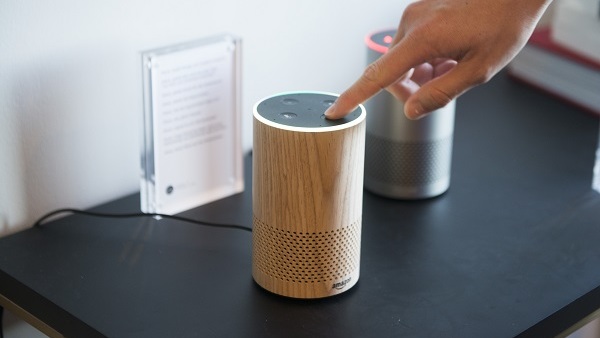
Mobile use is beginning to suffer at the virtual hands of in-home digital voice assistants, a new study reports.
According to professional services company Accenture, which surveyed 21,000 consumers in 19 countries between last October and November, 66% of people who own a digital voice assistant used their smartphones less at home since installing the device.
About two-thirds (64%) said they used their smartphones less for entertainment, and more than half said they’ve stepped away from their smartphones when it comes to making purchases or doing general searches for information (58% and 56%, respectively).
“Digital voice assistant devices are challenging smartphones as the central hub for all activities in the home,” Accenture Global Managing Director David Sovie said. “These low-cost devices deliver valuable and practical benefits and are relatively easy to use, and their rapidly growing popularity is one of the most striking trends in the high-tech industry.”
Voice-controlled digital assistants operate on several kinds of devices, though in-home versions typically look like speakers. Alexa, for example, is Amazon’s voice-activated digital assistant. It is part of the company’s line of interactive Echo speakers and other devices, and it operates using various “skills” that give the devices a range of capabilities, allowing them to do everything from play music to buy things or even lock the front door – all via voice command.
Ownership levels of digital voice assistants are expected to more than double in 2018, hitting 37% of the online population in the United States, according to the report. About two-thirds (63%) of the survey respondents said they already use or are interested in using a digital voice assistant device, and a whopping 94% of current users said they were either satisfied or very satisfied with the devices.
“Device adoption may be the easy part; keeping consumers engaged could be more challenging. The winners will be the ones who can tailor an app to provide a truly integrated digital and physical experience,” the study said.
Credit unions at the forefront of the voice-technology movement might be poised to capitalize on the upswing in use and demand.
In November, for example, Enrichment Federal Credit Union became the first credit union to roll out technology that allows members to manage accounts via Amazon’s Alexa. Members of the Oak Ridge, Tennessee-based credit union can move money between accounts, make loan payments and access balances and account histories using voice commands on voice-controlled smart speakers. Enrichment has $456 million in assets and about 42,000 members. In December, Jack Henry’s Symitar division also introduced voice-enabled financial transactions via Amazon Alexa.
The technology that powers those Alexa capabilities is called the Financial Interaction Voice Experience (FIVE) and is from Best Innovation Group, a Tampa, Fla.-based technology think tank founded by former Wescom Credit Union Chief Technology Officer John Best. FIVE isn’t the only financial “skill” available for the Alexa system, but it is one of the most comprehensive to date, according to Best Innovation Group.


